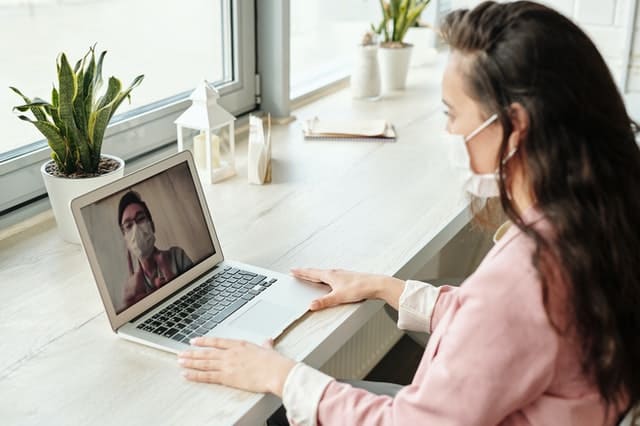The sudden occurrence of the COVID-19 virus caught everyone off guard during the first quarter of 2020. Just when you thought it was going to be another “walk in the park,” things took a sudden turn and eventually, the world found itself running up against a new threat that we would have never foreseen, at least for the past few decades. While there were a couple of viruses which made waves throughout the years, COVID-19 took one step further and made a significant shift all around the globe. People lost their jobs, people lost their loved ones, and everything was left in shambles. Even if you were able to retain your employment, you may have family members, friends, or loved ones who were not so lucky, and you may have probably seen their suffering and struggle throughout the whole ordeal. There were those who were able to find a job even before 2020 ended, but the same can’t be said for those who are still searching through the classified ads, hoping to find a way to feed their family, even during the pandemic.
Understandably, these hardships created a limitation that somehow tried to protect everyone from the rampant virus, and indeed, the number of people who contracted COVID-19 decreased overtime. Yes, we have more than 400,000 positive cases, but just imagine if these limitations were not set in place, the numbers would have been more catastrophic. Now that we’ve entered 2021, you may be wondering about our current status, where we are right now, and the direction that our country is heading towards to. There were various implementations since the outbreak of COVID-19 in the Philippines last year, and from the very first guidelines released, there were changes made to ensure that we’d remain safe and free from the virus as much as possible. Coming into 2021, perhaps you may need a refresher, with regards to these guidelines and policies. Well, look no further than the following highlights straight from our LGUs.
First of all, what were these implementations?
The following were and are still implemented within Philippines as of today. Keep in mind that these implementations vary, depending on the cities and the barangays, so be sure to inquire about each of them before visiting a certain location far from home:
- Enhanced Community Quarantine or ECQ
Localities under an enhanced community quarantine (ECQ) are generally ordered to stay at home, with its residents restricted from traveling to other cities or barangays. Barangay governments can issue quarantine passes allowing residents to buy essential goods outside curfew hours and within the issuing barangays’ jurisdiction. - General Community Quarantine or GCQ
The general community quarantine (GCQ), which was introduced on May 1, is generally less stringent than ECQ. Public transportation is allowed at a reduced capacity and select businesses are allowed to operate at 50 to 100 percent of their regular capacity depending on their industry. Shopping malls are also allowed to operate, although only select stalls and stores are allowed to open. - Modified Enhanced Community Quarantine or MECQ
Similar to ECQ, however, this time people will be allowed to leave their homes only to obtain essential goods and go to work in industries allowed to resume by the government. - Modified General Community Quarantine or MGCQ
Similar to GCQ, as the movement goes back to normal, but mask-wearing, physical distancing and other health protocols will still be enforced.
How were these implemented within the different aspects of our society?

As strictly as they were implemented, people were confused about the context of these community quarantines, which is why the government clarified further on the matter. The following summaries were the main implementations of these community quarantines, as segregated by the context of our daily activities:
1) With Regards to the Movement of the People:
ECQ:
- 100% stay at home
- Exception for workers in offices or industries permitted to operate
MECQ:
- 100% stay at home
- Restricted movement, only for accessing essential goods and services
- Exception for workers in offices or industries permitted to operate
- Persons below twenty-one (21) years old, sixty (60) years old and above or those at high risk for contracting the COVID-19 disease are required to stay home
GCQ:
- Persons below twenty-one (21) years old, sixty (60) years old and above or those at high risk for contracting the COVID-19 disease are required to stay home
MGCQ:
- Persons below twenty-one (21) years old, sixty (60) years old and above or those at high risk for contracting the COVID-19 disease are required to stay home
2) With Regards to Travel & Transportation:
Motorcycle barriers are required for pillion riding or back-riding.
ECQ:
- No domestic flights, with limited international flights
- Public transportation is not allowed
- Shuttle services for employees of permitted offices or establishments, as well as point-to-point transport service, granted permission to operate by the government, with healthcare workers and other frontliners given priority
MECQ:
- No domestic flights, with limited international flights
- Controlled inbound flights
- No inter-island travel
- Public transportation is not allowed
- Private transportation such as company shuttles and personal vehicles allowed subject to the guidelines provided by the Department of Transportation (DOTr)
- Biking and non-motorized transport encouraged
GCQ:
- Public transport is allowed with strict social distancing
- Inter-island travel from GCQ to GCQ allowed with safety protocols.
MGCQ:
- Public transport is allowed with strict social distancing
- Inter-island travel from GCQ to GCQ allowed with safety protocols.
3) With Regards to Gatherings:
ECQ:
- Mass gatherings are not allowed
- Only mass gatherings that are essential for the provision of government services or authorized humanitarian activities permitted
MECQ:
- Highly restricted (maximum of 5)
- Non-essential work gatherings are prohibited
GCQ:
- Gatherings are limited to not more than ten (10) persons
- Non-essential work gatherings are prohibited
MGCQ:
- Fifty percent (50%) of the seating or venue capacity for movie screenings, concerts, sporting events, and other entertainment activities, religious services, and work conferences
4) With Regards to School:
ECQ:
- School premises are closed
MECQ:
- School premises are closed
GCQ:
- Skeletal workforce permitted in schools
- Face-to-face or in-person classes are suspended
MGCQ:
- Limited face-to-face or in-person classes may be conducted; strict compliance with minimum public health standards and consultations with local government units (LGUs) and guidelines set by the Commission on Higher Education (CHED)
5) With Regards to Work and Employment:
ECQ:
- Select industry workers permitted
MECQ:
- Essential industries permitted to work at full capacity, with others operating at a fifty percent (50%) capacity
- Work-from-home and other flexible work arrangements encouraged
GCQ:
- Alternative work arrangements
MGCQ:
- Full operating capacity for work in all public and private offices
- Alternative work arrangements for persons who are sixty (60) years old and above, or those with other health risks
6) With Regards to Government Services:
ECQ:
- Skeletal workforce onsite
- Work from home arrangements
MECQ:
- Skeletal workforce onsite
- Work from home arrangements
GCQ:
- Work in all government offices under alternative work arrangements
MGCQ:
- Work in government offices may be at full operational capacity, or under alternative work arrangements
7) With Regards to Exercise and Sports:
ECQ:
- Outdoor exercise not allowed
MECQ:
- Limited outdoor exercise (Outdoor walk, Jog/run, Bike) with face mask
- 2-meter physical distancing
GCQ:
- Indoor and non-contact sports allowed
- Walking, jogging, running, biking, golf, swimming, tennis, badminton, equestrian, range shooting, and skateboarding
- Minimum public health standards such as the wearing of masks and the maintenance of social distancing protocols, and no sharing of equipment where applicable, are observed
- Spectators in all non-contact sports and exercises are still prohibited
MGCQ:
- Indoor and non-contact sports allowed
- Walking, jogging, running, biking, golf, swimming, tennis, badminton, equestrian, range shooting, and skateboarding
- Minimum public health standards such as the wearing of masks and the maintenance of social distancing protocols, and no sharing of equipment where applicable, are observed
- Spectators in all non-contact sports and exercises are still prohibited
Take note that these may have been changed overtime, so feel free to contact your local Barangay for more information. These guidelines, as limiting as they are, simply uphold the safety and well-being of the people, which is why you should:
- Always wear a face mask and a face shield when going outdoors.
- Always wash your hands.
- Bring a small bottle of alcohol with you, at all times.
- Strictly follow social distancing guidelines as much as you can.
- Be vigilant about the number of people in a certain space.
- Avoid going to public places if you do not have any important business to conduct within the said location.
- Make sure to full out your contact tracing forms with the complete details.
- Bring your own pen.
- If you were to conduct business or process a couple of important documents within a government facility or agency, do everything in a timely manner and immediately be on your way.
These are just some of the safety tips for the modified quarantine period. There may still be other guidelines from the LGUs, in such case, feel free to coordinate with your local government and barangays for more information. With all of these in mind, it may be no surprise that you’re looking for ways to further protect your family’s future. The current pandemic has taught us to be vigilant and prepared, and indeed, it is a lesson we will abide put to heart even when the pandemic is over. If you’re still weighing your options, then look no further than Cebuana Lhuillier’s Microinsurance Services. It offers affordable insurance products that enable Filipinos to avail financial services and privileges that higher-income earners have easy access to. Aside from that, it also

